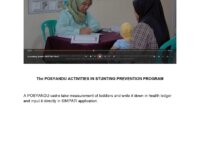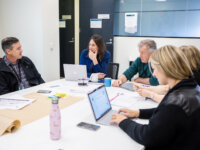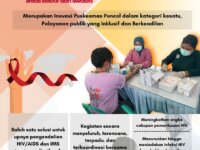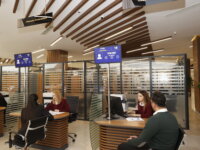The Hub for Advisory, Finance and Investment for Enterprises (HAFIZ - Arabic word حافز for incentive) is an AI-powered integrated portal by Egypt’s Ministry of International Cooperation and works as a one-stop hub to avail to the private sector: (1) financial instruments (e.g. equity, debt, trade finance, insurance, guarantees, grants, etc.); (2) technical assistance services; and (3) knowledge products by international development partners.
Case Study Library
Where innovations are collected and shared to disseminate and replicate good ideas

Innovations:
0
This website, as well as any data and map included herein, are without prejudice to the status of or sovereignty over any territory, to the delimitation of international frontiers and boundaries and to the name of any territory, city or area.
UAsk, born from the need for seamless access to government services in the UAE, is an AI-powered chatbot transforming citizen engagement. Serving residents, businesses, and visitors, it leverages generative AI, particularly ChatGPT, for real-time, multilingual, and reliable information. Its innovation lies in delivering an inclusive, user-centric, and efficient digital experience, revolutionizing interactions with diverse government services within the digital governance realm.
The Small Business Development Corporation (SBDC) has embraced human-centred design to transform the way regulation is developed and applied for small businesses in Western Australia. The SBDC partnered with 22 local governments to deliver the Small Business Friendly Approvals Program, which involved reviewing the approvals journey from the small business’ perspective and designing reforms to streamline processes. The Program has ignited transformational change and made it easier to do…
The number of undetected cases is a link in the chain of spread of HIV/AIDS in society, so massive efforts are needed to find new cases, not only at-risk populations but also in non-risk population groups with more innovative approaches. This Innovation is here as a solution to solve problems by raising commitment to build collaboration between the government, business world, NGOs and society to jointly fight HIV/AIDS with the aim of finding wider HIV/AIDS cases with more flexible activity times
BRISE-Vienna pioneers a digital revolution in building permit procedures, addressing inefficiencies with a groundbreaking approach. The integration of AI, AR and 3D modeling accelerates the process, enhancing project quality. This innovative solution benefits administrative staff, project participants and citizens, ensuring a partially automated review, seamless networking, digital access, heightened transparency and 50% time savings.
Born in Belgium Professionals is a RIZIV project that offers a digital tool, developed by and for professionals who work with or for (vulnerable) pregnant women. The tool is an online, shared platform that centralizes information about the psychosocial situation of the pregnant woman and makes it available to her care providers and healthcare providers from the (para)medical and social sector, fully in accordance with privacy legislation (GDPR).
SME Houses are one-stop-shop centers providing comprehensive services and support tools to SMSs during planning, starting, running and developing businesses. It is a unique initiative that allows mobilization and coordination of resources of all public and private stakeholders to contribute to development of SME sector. It makes it easier for those who often don’t know from where to get specific services to just go to one facility and get consultation, guidance, services and support.
Case Study
SIMPATI (Sistem Informasi Pencegahan Stunting Terintegrasi – Integrated Stunting Prevention…

The Local Government of Sumedang Regency, Indonesia has developed a new platform, ‘SIMPATI (Sistem Informasi Pencegahan Stunting Terintegrasi - Integrated Stunting Prevention Information System)’, as a tool to collect real-time data to make stunting reduction programs more effective and integrated. Through the SIMPATI platform, the government has a way of improving stunting reduction program, increasing stunting data management, and decreasing the stunting rate to solve the problem.
Suwon City, a municipality in South Korea, has streamlined its 12 public institutions by establishing a private cloud-based integrated business service. This boosts work efficiency by providing quality services without constraints on specialized personnel and server room operating environments. Integration of common tasks ensures data transparency and cost-effective operations.
The SMART LIDAR System uses advanced scanning lidar technology to monitor air quality in real-time and detect pollutants accurately. It helps identify and enforce against illegal emissions, reducing environmental pollution. Affordable and scalable, it offers an innovative solution for air quality monitoring.




